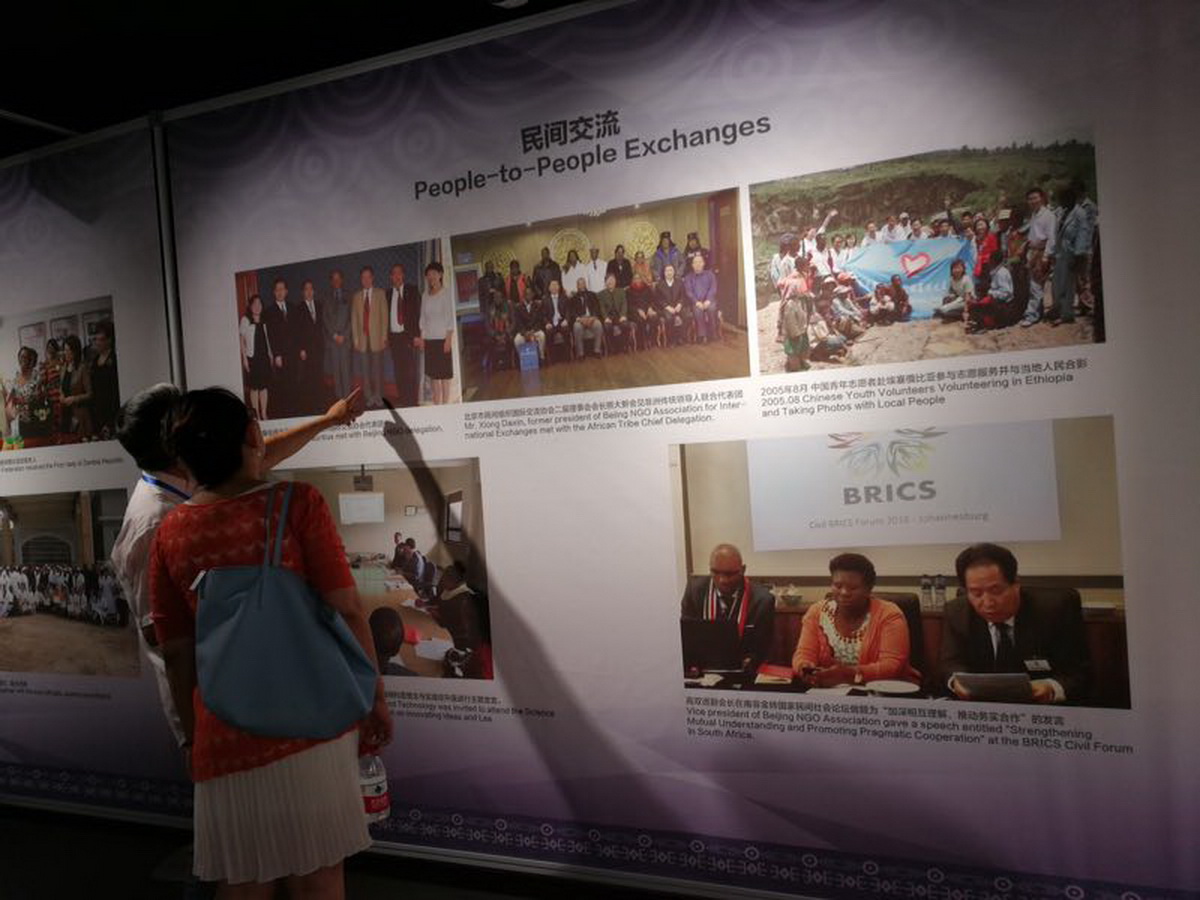The Belt and Road Initiative and Africa

The theme that brings us together right now is of paramount importance, especially to me.
Our world has for some time gone through complex and important changes. These changes greatly affect the present and will mark the destiny of Africa. The global economy is in a difficult situation presently. International trade and investment are sluggish and deserve reassessment. The African continent faces severe development problems.
Africa, when compared with other continents, is known as the richest continent (30 percent of the most important natural resources of the world exist in Africa) but still remains poor. The continent has the youngest population (64 percent of the population is youth), which creates huge demographic dividend for Africa. However, these young Africans are still swimming in the state of alarming underdevelopment.
The continent of Africa is viewed as a place of conflict and poverty. This situation is pushing thousands of young people to take the path of immigration for a hypothetical Eldorado. This sad picture challenges our civilization. It brings us to ask ourselves the question: Towards which destiny is Africa heading?
I think in order to find solution to the above question we need to look at the history of civilizations.
Speaking of civilization, when I was growing up, we were taught that for thousands of years Chinese civilization has never ceased to make imperishable contributions to the construction of peace, economic development, cultural development and creating a favorable atmosphere for the progress of humanity.
Before the coming of Christ, the Chinese civilization had been in existence. During this period the Chinese invented the compass 1,000 years before the birth of Christ. During the evolution of this brilliant multi-millennial civilization, brave Chinese people cooperated with others such as countries in Asia, Europe, and Africa. This path paves way for the Chinese to strengthen their relationship with all these nations as well as establish trade and cultural exchange routes between China, Asia, Europe and Africa.
These paths have favored the relationship between the Chinese civilization and the civilization of Africa. Thanks to the Chinese for sharing their knowledge with other regions, during this period, there was the circulation of artistic and commercial products among people of diverse cultures. At this time, silk was the subject of attraction. Thus, the routes taken by these brave merchants were later called the “Silk Road.”
The Silk Road was not just a trade and business route. It was also a link between multiple and diverse peoples from Asia, Europe, and Africa. By this road peoples of the “Middle Kingdom” were able to meet the people of the cradle of humanity—Africa. It has become with time a true spirit that is called the “Silk Road Spirit.”
The Silk Road Spirit is based on exchange, cooperation and reciprocal inspiration. It is also rooted in shared interests and acceptance of differences and diversity. This spirit has sown peace and harmony between many different peoples. It has contributed to the progress and development of the cities, regions and countries concerned. It has caused the mixing of cultures.
In my home country Mali, an old saying goes: “The Eagle does not give birth to a goat.” In other words, “great peoples always produce great men.” The stories of great civilizations are written by great men.
Speaking of great man, in 2013, as a source of inspiration in the depths of his country’s culture and history, as well as the Silk Road Spirit, Chinese President Xi Jinping launched the Belt and Road Initiative. It is about building jointly with the world the Silk Road Economic Belt and the 21st-century Maritime Silk Road.
The joint construction of the Belt and Road responds concretely and perfectly to the needs of Africa as well as the need for development.
Africa will benefit from the effect of artistic, cultural and sporting events organized alternately in the countries, cities and villages concerned.
The Belt and Road Initiative restores vitality to the ancient Silk Road, strengthens the relationship between Asia and Africa in a new form and brings mutually beneficial cooperation to a new, historic level.
The author is a professor, senior researcher and lecturer with the Institute of African Studies at Zhejiang Normal University.